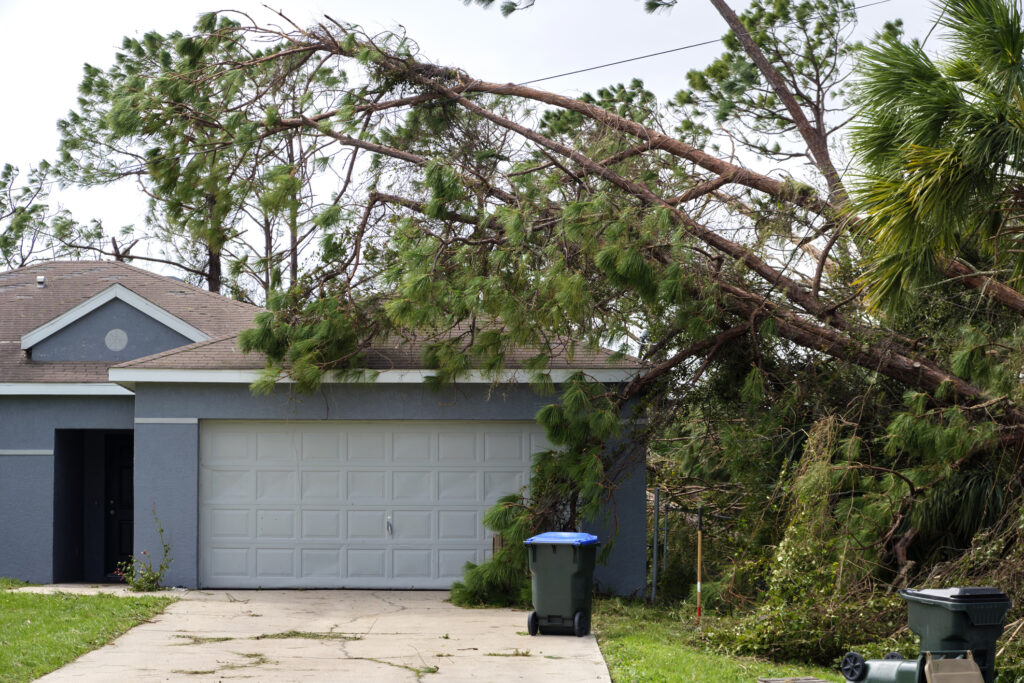If you own a home, homeowners insurance is a must-have, to protect your largest investment. Whether there’s a fire, a burglary, or your home gets swept up like Dorothy’s house in a tornado, insurance will help you repair or replace what was lost.
Shopping for homeowners insurance may seem like a lot, with so many policies from different companies available. But never fear—with the right approach, you can find the coverage you need at a competitive rate. Here’s how to shop for homeowners insurance.
1. Understand your needs
Before you start shopping, you need to understand your needs. Consider the following factors:
Type of coverage
Decide what type of coverage you need. Most policies include dwelling coverage (for your home’s structure), personal property coverage (for your stuff), liability coverage (for injuries or property damage caused by you or your family), and additional living expenses coverage (for temporary housing if you can’t live in your home).
Policy limits
Determine the coverage limits for each category, and make sure they match up with your home’s value and the value of your possessions. Consider any valuable items, such as jewelry or artwork, which may require additional coverage.
Deductible
Choose a deductible that works for you. This is the amount you’ll pay out of pocket before the insurance kicks in. A higher deductible often results in lower premiums but requires a greater upfront payment in the event of a claim.
2. Start with your current insurance company
If you already have other insurance policies, like auto or renters insurance, contact your current insurer first. They may offer discounts for bundling policies, which can help you save.
3. Shop around
To find the best coverage at the right price, compare quotes from multiple insurance providers. Consider these methods:
Online comparison tools
Websites and apps like Policygenius, Zillow let you input your information once and compare quotes from various insurance companies.
Local independent agents
Independent insurance agents work with multiple providers and can offer personalized advice. They can help you navigate the complexities of different policies and find the best fit for your needs.
Direct contact
Reach out to insurance companies directly by phone or through their websites. Use their online tools or speak with their representatives to get quotes tailored to your requirements.
4. Understand coverage options
homeowners insurance policies offer various options and endorsements. Pay close attention to these factors:
Basic vs. comprehensive policies
Some policies offer basic coverage, while others are more comprehensive. Understand what each policy covers and select one that aligns with your needs.
Special considerations
If you live in an area prone to specific risks, such as floods or earthquakes, you may need additional coverage. Standard homeowners insurance typically doesn’t cover these perils.
Replacement cost vs. actual cash value
Consider whether you want coverage that pays the replacement cost of your home and belongings or their actual cash value, which accounts for depreciation.
5. Research the insurance provider
The reputation and financial stability of the insurance company are crucial. Do thorough research by:
Checking ratings
Organizations like A.M. Best, Standard & Poor’s, and Moody’s provide financial strength ratings for insurance companies. Look for high ratings, as they indicate the company’s ability to meet its financial obligations.
Reading reviews
Look for reviews and testimonials from current and former customers. Online forums, social media, and consumer advocacy websites can provide insights into customer experiences.
6. Inquire about discounts
A lot of insurers offer discounts that can help lower your premiums. Ask about:
Multi-policy discount
Bundling your homeowners insurance with other policies like auto insurance can lead to significant savings.
Safety and security features
Homes equipped with security systems, smoke detectors, fire extinguishers, and deadbolts may qualify for discounts.
Home renovations
Upgrading your home with certain features like a new roof or impact-resistant windows can often lead to premium reductions.
7. Assess customer service
Good customer service is essential, especially when you need to file a claim or have questions about your policy. Evaluate the provider’s customer service reputation through online reviews and by speaking with their representatives.
8. Review the claims process
Understanding how the insurance company handles claims is crucial. Inquire about the claims process, response times, and the availability of customer support during claims.
9. Check for coverage restrictions
Examine the policy for any restrictions or limitations that may affect your coverage. These could include restrictions on certain types of claims, the use of your home, or geographic limitations.
10. Periodic reevaluation
Your homeowners insurance needs may change over time due to factors like home renovations, additions, or changes in personal circumstances. Regularly reassess your policy to ensure it continues to meet your needs and remains cost-effective.
The bottom line: how to find the right insurance
Shopping for homeowners insurance requires careful consideration of your needs, budget, and coverage options. By comparing quotes, researching insurance providers, exploring discounts, and understanding policy details, you can secure the right coverage at a competitive rate. Keep in mind that homeowners insurance is an investment in protecting your most valuable asset, your home, and its contents, so take the time to make an informed decision.










